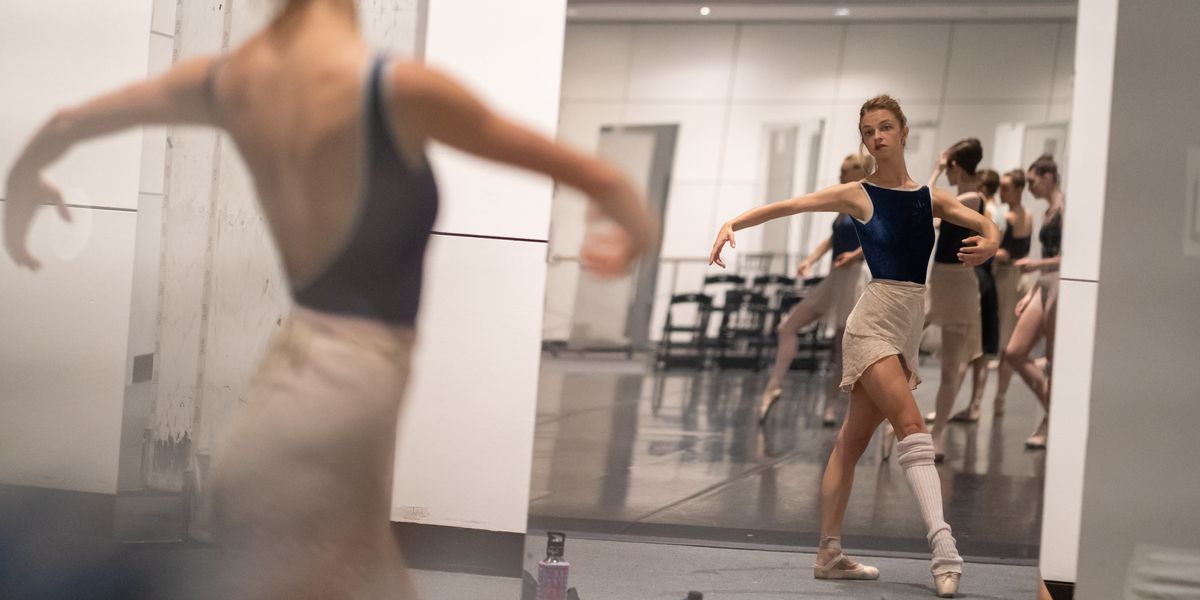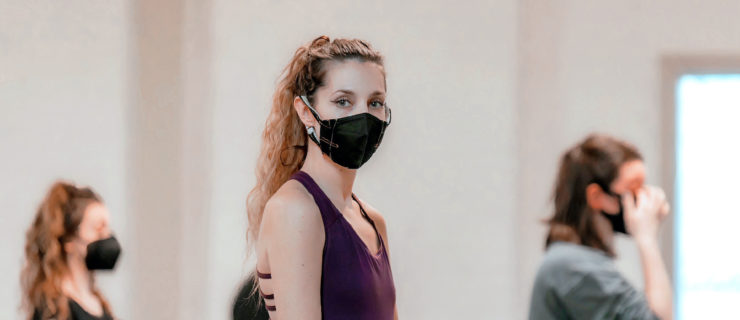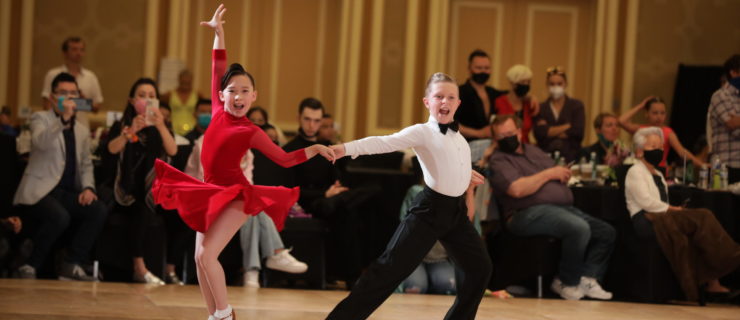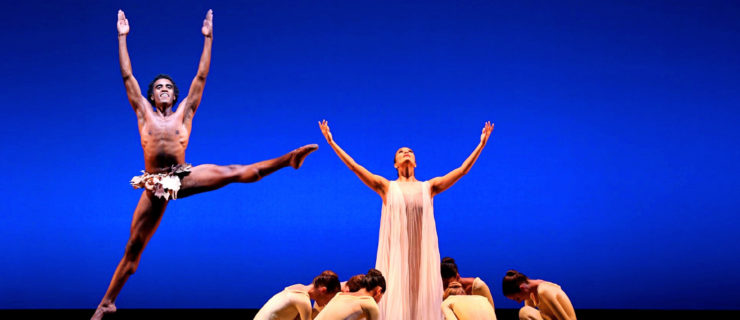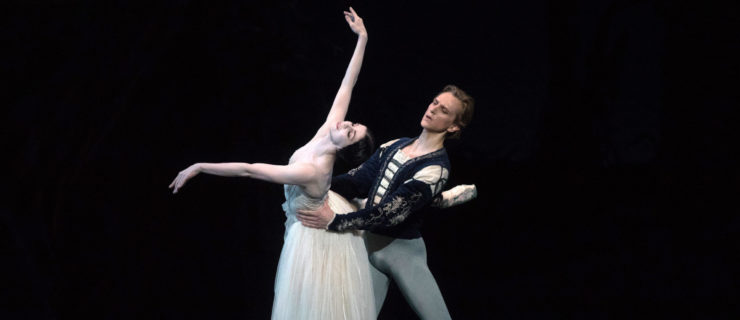What to Expect at Your First Dance-Contract Meeting
As a dancer, you get artistic feedback in small doses every day: “Don’t forget to spot,” “Turn out your leg,” “Raise your passé”—the works. But what happens when you land that first job, and it comes time to sit face-to-face with your company’s artistic leadership to discuss your bigger-picture progression? We asked three experts for the inside scoop on contract meetings.

Filo signs her first contract with American Contemporary Ballet (courtesy Filo)
What Should You Expect?
Every season, directors hold contract meetings to discuss each dancer’s future in the company. In an office or an empty studio, dancers—both new and old—sit before the artistic and executive directors and discuss the status of their contracts.
Your contract may be renewed, you may be promoted, you may get a raise, or you may be invited to audition elsewhere. Elise Filo, company dancer with American Contemporary Ballet, and Jacob Frazier, company dancer with Giordano Dance Chicago, say, in their experience, contract decisions are based on your work over the year, your professionalism, and how well you mesh with the company. Donna Bontrager, artistic director of Ballet Fantastique, explains that factors outside a dancer’s control affect these decisions as well. “Especially related to promotion within our company,” she says, “contract decisions are based on funding, openings, and sometimes may be impacted by programming planned for the following season.”
Contract meetings are conducted like business meetings, so it’s important to be professional from the moment you walk through the door. “Present your best self and look as formal and responsible as possible,” Frazier says. “The more you can prove you’re there to be a professional, the more you’ll stand out.”

Donna Bontrager (right, seated) with executive director Hannah Bontrager in the studio (Stephanie Urso, courtesy Bontrager)
How Should You Prepare?
Contract meetings are your chance to reflect on the season as a whole. Frazier and Filo encourage dancers to come ready to participate in the conversation.
Prep by reviewing everything you’ve done during the season and thinking about what you’re working towards moving forward. “Don’t be afraid to ask what their expectations are for the year and what they’re looking for from you,” Filo says. “There’s something nice about getting answers and knowing where you stand—it’s actually a more calming experience than you might expect.”
And while these meetings are mainly held to discuss how well you’re working in a company, they’re also meant to assess how well the company is working for you.
“Be transparent with your employer,” Frazier says. “We are artists, but we are also employees. You have to ask yourself as you walk into those meetings: Am I fulfilled as an artist? Is this a mutually beneficial experience? If not, voice how you feel.”
Bontrager encourages this kind of conversation. “We invite dancers to be candid with us about their artistic goals,” Bontrager says, “and we’re candid with them about their growth and development within our company.”
But be wary of being overly aggressive in your delivery and your demands. “When aggressive contract demands are not based on demonstrated effort and achievement and time with the company, this implies that you don’t value our team’s support and discretion,” Bontrager says.

Jacob Frazier performs with his fellow Giordano Dance Chicago men in Ray Leeper’s Soul (Todd Rosenberg, courtesy Frazier)
How Should You Handle the Results?
No matter what happens, “always be gracious,” Filo says. If you don’t get hired back, thank them for the opportunities you’ve had and know that it was no longer the best fit. “You wouldn’t have been cast. You wouldn’t have been dancing,” Filo says. “You’re going to find a better fit—a company that really appreciates you.” Filo adds that it’s never bad to ask why your contract wasn’t renewed. You can always use that information to grow.
“Turn any criticism into a positive—say thank you,” Frazier says. “Work on it as needed in the studio—in your professional life—but don’t obsess over it.”
Despite the nerves and stress that come with these meetings, Frazier and Filo encourage dancers to see contract meetings as an exciting moment in their careers. “Acknowledge the hard work it took for you to get there,” Filo says, “and know that whatever is meant to be will be.”
